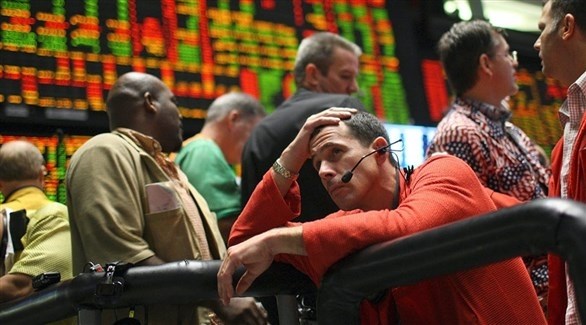The Psychology of Trading: Overcoming Emotional Hurdles
Trading is not just about strategies, charts, and economic indicators; it's equally about mastering one's emotions and psychological resilience.
Trading is not just about strategies, charts, and economic indicators; it's equally about mastering one's emotions and psychological resilience. The psychological aspect of trading can often be the dividing line between success and failure. This article explores the common emotional hurdles traders face and offers strategies to overcome them, ensuring a more disciplined and profitable trading journey.

⚖️ Fear and Greed: The Twin Pillars
Fear and greed, often referred to as the twin pillars of trading psychology, play significant roles in shaping the behavior and decision-making processes of traders. These emotional responses, deeply ingrained in human nature, can greatly influence trading outcomes. Understanding and controlling these emotions is essential for consistent success in trading.
🧍 Fear: The Multifaceted Emotion
Fear in trading can manifest in multiple ways, each impacting traders differently.
| Type of Fear | Description |
|---|---|
| Fear of Losing Money | Causes premature exits from positions, driven by a natural aversion to loss. This can lead to cutting winners too short, preventing the full realization of potential profits. |
| Fear of Missing Out (FOMO) | Drives traders to jump into trades without proper analysis, often resulting in buying at peaks or selling at troughs. This behavior is amplified during periods of market volatility. |
Example: During periods of heightened volatility, FOMO becomes particularly strong, leading traders to chase quick gains without adequate risk assessment. Fear of losing can cause traders to exit profitable trades too early, missing out on potential profits. Both types of fear can lead to hasty, irrational decisions that disrupt a trader’s overall strategy.
💸 Greed: The Insatiable Desire
While ambition and the desire for profit are natural, unchecked greed can distort these motives into a quest for excessive gain, leading to risky behavior.
| Manifestation of Greed | Effect on Trading |
|---|---|
| Holding Positions Too Long | Ignoring market reversal signals, leading to erosion of accrued gains. |
| Overleveraging | Using excessive borrowing to amplify potential profits, which increases the risk of substantial losses. |
Example: Greed can make traders hold onto a winning trade for too long, hoping for more gains, only to see profits vanish when the market reverses. Additionally, traders may engage in overleveraging, using borrowed funds to magnify gains. While this can lead to significant profits, it also drastically increases risk, with the potential for substantial losses.
📉 Overconfidence and Doubt
| Emotion | Effect |
|---|---|
| Overconfidence | Leads traders to ignore risk management principles after a string of successes. |
| Doubt | Causes traders to second-guess decisions, missing opportunities or exiting trades prematurely. |
Overconfidence is often fueled by a series of successful trades, leading to risky behaviors such as increasing trade sizes without proper analysis. Conversely, doubt can cause a trader to miss opportunities, hesitate, or exit trades too early. Both can be detrimental to a trader's overall strategy.
📈 Strategies to Overcome Emotional Hurdles
Establish a Trading Plan
A comprehensive trading plan that includes entry and exit rules, risk management strategies, and goals can serve as a roadmap, helping traders avoid impulsive decisions based on emotions. A well-thought-out plan provides structure, reduces uncertainty, and helps traders stick to logical decision-making even when emotions run high.
💡 Practice Risk Management
Implementing stop-loss orders and setting limits on how much of your portfolio to risk on individual trades can help mitigate the effects of greed and fear. Knowing that protective measures are in place can provide peace of mind, allowing traders to operate without the constant fear of catastrophic losses.
📓 Keep a Trading Journal
Recording your trades, including the rationale behind them and the emotions you experienced, can offer valuable insights. Regular reviews help in identifying emotional patterns. For example, if you notice frequent exits driven by fear of loss, you can develop strategies to counter this behavior, like adjusting your stop-loss positions.
🧘 Embrace Mindfulness and Emotional Awareness
Mindfulness practices can enhance emotional regulation, helping traders remain calm and focused. Recognizing and acknowledging emotional responses without acting on them impulsively can improve decision-making. Techniques such as meditation, breathing exercises, or even short breaks during trading can help regain focus.
🎓 Educate Yourself Continuously
Knowledge is a powerful antidote to fear. The more you understand the markets and your trading strategy, the more confidence you'll have in your decisions. This reduces the likelihood of emotional trading. Continuous education keeps traders informed about the latest market trends, which helps them anticipate market movements and adapt their strategies.
🤝 Build a Support Network
Engaging with a community of traders can provide emotional support, shared strategies for coping with the psychological aspects of trading, and objective feedback on trading decisions. Having a network of peers can offer perspectives you might not have considered, helping you avoid tunnel vision in your trading approach.
🤲 Accept Losses as Part of the Process
Understanding that losses are an inevitable part of trading can help you view them as learning opportunities rather than failures. By accepting losses, traders are more likely to avoid emotional responses such as revenge trading, where they attempt to make up for losses through impulsive decisions. This perspective shift is crucial for emotional resilience and long-term success.
🏁 Conclusion
Mastering the psychology of trading involves recognizing and managing emotions like fear, greed, overconfidence, and doubt. Establishing structured strategies, practicing discipline, and building a support network can significantly enhance trading performance, turning emotional challenges into opportunities for growth and learning. Ultimately, self-awareness and emotional control are as critical as technical analysis in achieving trading success.
❓ FAQ
| Question | Answer |
|---|---|
| What is FOMO in trading? | FOMO, or Fear of Missing Out, drives traders to enter trades impulsively, fearing they may miss a profitable opportunity. |
| How does greed affect trading? | Greed can lead traders to hold positions too long, ignore risk management, or use excessive leverage, increasing the risk of substantial losses. |
| What is a trading plan? | A trading plan is a structured approach that outlines entry/exit rules, risk management, and goals, helping traders avoid impulsive decisions based on emotions. |
| How can mindfulness help in trading? | Mindfulness enhances self-awareness and emotional regulation, helping traders avoid impulsive decisions, stay calm, and make informed trading choices. |
| Why is a trading journal important? | It helps traders identify patterns, understand their emotional triggers, and make improvements to their trading strategy. |







